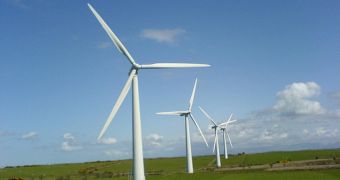According to a new report made public by Germany's Federation of Energy and Water Industries, the year 2012 was the country's best, at least as far as energy exports go.
More precisely, Germany succeeded in exporting about 12.3 terawatt hours of electricity throughout the first nine months of the year 2012. By comparison, the first three quarters of the previous year witnessed the country's sending just 8.8 terawatt hours over its borders.
Needless to say, this national record in terms of electricity exports was established without the country's citizens ever experiencing major energy outages.
Inhabitat explains that the achievement is all the more noteworthy seeing how, since 12 years ago, Germany has been making considerable progress towards cutting down and eventually eliminating its dependence on nuclear power.
When the country's high officials first informed the general public with respect to this planned reform for the country's energy industry, there were many who claimed that Germany would soon find that it was impossible to make do without nuclear power.
Still, it seems that the investments made in developing and implementing technologies that help harvest renewable energy sources and turn them into electricity finally paid off.
Interestingly enough, the electricity presently sold by Germany is so cheap that countries such as the Netherlands decided that it would be best to shut down their own gas-powered plants and buy from their neighbors instead.
Truth be told, Germany's electricity exports stand to decrease during the coming winter months, when neither solar nor wind power will be harvested with as much efficiency as during the first few months of the year.
However, this does no change the fact that this country has proven that switching from nuclear power to more environmentally-friendly energy sources is indeed something well within reach.
Meanwhile, Japanese high officials seem dead set on keeping at least one of the country's nuclear power plants up and running, a decision that caused thousands to rally in Tokyo and protest the national energy policies.

 14 DAY TRIAL //
14 DAY TRIAL //